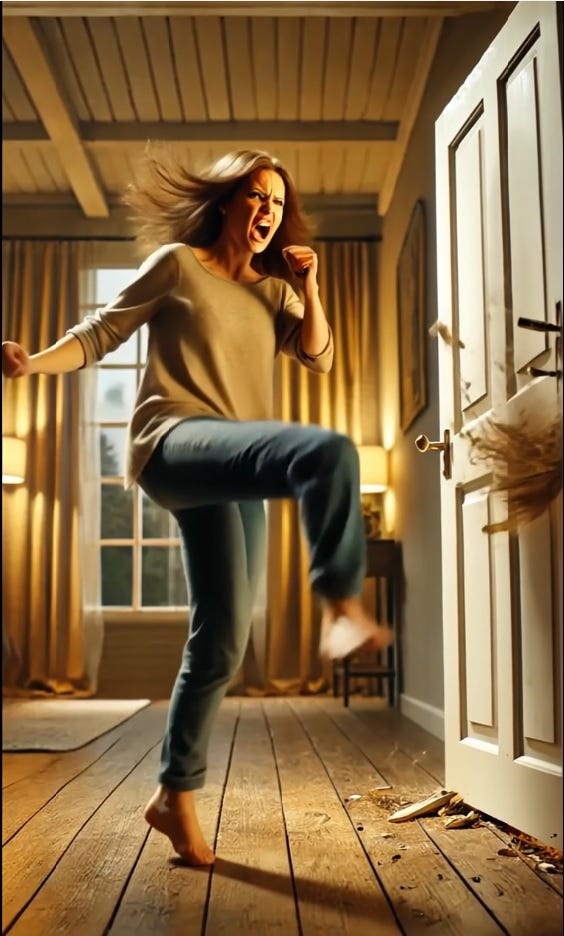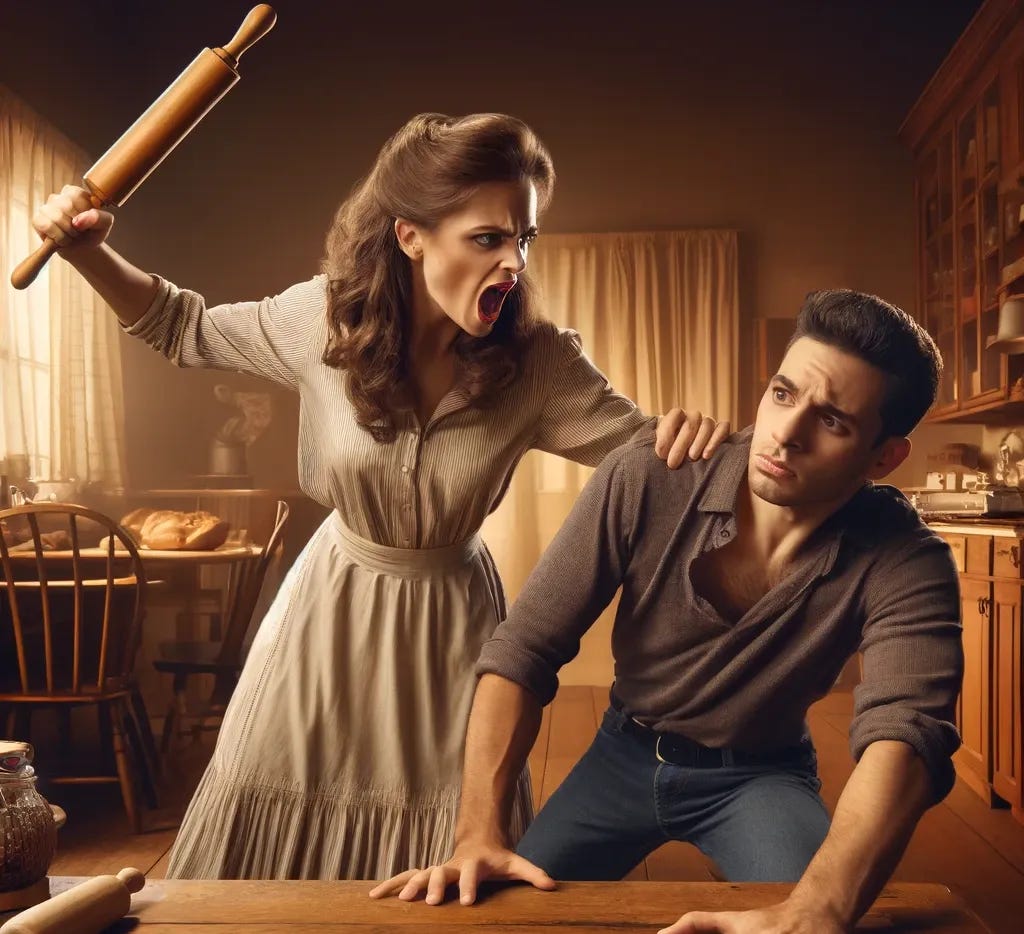Part 2 – Wisconsin Law Requires Arresting Men Regardless of Who Perpetrated the Violence
Daniel Carver
Wisconsin State Statute 49.165(2)(f)9.
“Award a grant in each fiscal year to the Wisconsin Coalition Against Domestic Violence toward the cost of a staff person to provide assistance in obtaining legal services to domestic abuse victims.” Since the domestic violence (DV) shelters serve only women, this means that the taxpayers are funding paralegals (often working in the Department of Justice) to assist women through the maze of family court; while the men receive zero legal assistance. This is an amplified ex parte legal system long before the case gets to a judge for adjudication. Guaranteed ex parte in every case, written into the state statutes!
During my divorce proceedings I filed an ex parte request to the judge in hopes of being heard and understood but that did not happen. Ex parte in Wisconsin is only for women. Equitable due process for all? The government is providing free legal assistance only to women while men have the legal deck stacked against them. In my case a government paid official, the (Director of the Child Support Office) literally wrote the legal contract herself and it was no secret that the government was writing it, to favor my ex-wife, and then my legal options were to pay half a year’s salary in legal fees to an attorney to fight for me; or sign this document. This is systemic corruption beyond draconian and is anything but fair or just.
Digging further into Wisconsin statutes, I finally found the law that gets men arrested whether or not they caused or started the domestic violence! I could hardly believe I was reading it, but it’s true.
Wisconsin statute 968.075 (1)(e)
““Predominant aggressor” means the most significant, but not necessarily the first, aggressor in a domestic abuse incident.” [Effectively, this means the larger person that is stronger gets arrested – ie. the man]
Wisconsin statute 968.075 (2)
“Circumstances requiring arrest; presumption against certain arrests.”
Wisconsin statute 968.075 (2)(a)2.c
“The person is the predominant aggressor.”
Wisconsin statute 968.075 (2)(a)2.(am)
“it is generally not appropriate for a law enforcement officer to arrest anyone under par. (a) other than the predominant aggressor.” [Effectively, this means the officer may not arrest the woman because that would be inappropriate since she is a woman!]
Wisconsin statute 968.075 (2m)
The predominate aggressor once arrested may not be released without posting bail or appearing before a judge.
Wisconsin statute 968.075 (3) Law Enforcement Policies (a)
“Each law enforcement agency shall develop, adopt, and implement written policies regarding procedures for domestic abuse incidents. The policies shall include, but not be limited to, the following:” I wrote many sheriff’s offices and police departments asking to see their written policy on domestic abuse incidents. Most refused to give me a copy. A few did and these policies varied widely between jurisdictions. No authority to arrest a citizen and require bail should be under the authority of a local “policy”; especially not when written by the agency that is also enforcing the law! That’s corruption. Checks and balances in the three legs of government? Arrests should be made according to a state or federal law, not some local policy. Moreover, a law should never pass it’s legal authority down to a local policy, and especially a policy written by officials that were never elected ! This is the type of thing you would see in a communist government of totalitarian authority.
But wait, it gets worse in Wisconsin:
Wisconsin statute 968.075 (4) Report Required Where No Arrest “If a law enforcement officer does not make an arrest under this section when the officer has reasonable grounds to believe that a person is committing or has committed domestic abuse and that person’s acts constitute the commission of a crime, the officer shall prepare a written report stating why the person was not arrested. The report shall be sent to the district attorney’s office, in the county where the acts took place, immediately after investigation of the incident has been completed. The district attorney shall review the report to determine whether the person involved in the incident should be charged with the commission of a crime.”

Notice that it says “the person” (singular) involved in the incident. The law does not even allow the officer to say that the incident was caused by both partners and that they should both be investigated! The district attorney may only investigate “the person”, which, for all practical purposes….. is the man.
If the reader is questioning these things, I challenge you to ask some retired law enforcement officers to speak off the record about some of their stories when they were required to enforce these draconian laws against men. I have talked to them, and the injustice is well known on a practical level by officers, yet they must go by the law and enforce said law; whether they think it is fair or not. The officer doesn’t write the laws, only enforces them.
So I decided to try to get involved with and attend a meeting of the Governor's Council on Domestic Abuse (driving three hours to the meeting place). I had to ask many times to even get them to email me a meeting notice, then I had to ask often again to get an agenda to those meetings. I attempted to get on their agenda and of course was told no.
You’ll notice on their website, the next meeting date is not published yet. By law in Wisconsin a public meeting must be announced, so this council (90% women) even says on the website they will post a notice 24 hours before the meeting. This seems to be for the purpose of preventing accountability from citizens attending. Why else would they not plan public meetings in advance and publish their time/date/location? Why else would they give only 24 hours notice on a regular basis each month?
They even write out the excuse on their website that meetings can’t be announced in advance due to “unforeseen issues”. These “unforeseen issues”, never described, happen every month like clockwork. So they are not breaking the written law when they announce 24 hours in advance, but they are definitely breaking the intent of the Wisconsin open meetings law. To the Governor's Council on Domestic Abuse,

I offered to volunteer in service as a council member since I was a domestic violence victim.......... you might imagine that their answer was no. I discovered this council had a subcommittee like a task force, on the topic of access to services ! I went to that meeting to point out that my local DV shelter had employed 100% women as victim’s advocates and should also offer services by male DV advocates.
The council’s subcommittee meeting I attended had a prominent speaker, the Director of End Abuse WI. She was there to convince them to issue another 2 million dollar grant so I looked up the grant invitation and it was written such that only large organizations could meet the grant requirements and of course this End Abuse WI organization was large enough to qualify for this grant. The grant proposal invitation itself (Written by who? I have a suspicion) prevents small community based organizations from receiving any of the available dollars.
The entire Governor’s council subverts an open and fair process so they can funnel big money to the feminist shelters that discriminate against men. Many of the shelters offer public classes, paid by tax payers, in how to be a feminist, some avoided that word, others used it boldly in the title of their tax payer funded class that is offered free to the public – women only of course.
To show the full circle of feminist corruption in tax payer money; consider this hallway conversation. This is when the systemic corruption became so clear to me. As I left the meeting of the subcommittee of the Governor’s Council on Domestic Abuse; I stopped the Director of End Abuse Wisconsin in the hallway to tell her I’d learned of the law that required arrest at every incident and how it was really a requirement to arrest the man. She said to me, "No, it doesn't say that. I know because I wrote it."

So what’s really going on is the 35 DV shelters in Wisconsin, non-profits, violate labor laws by hiring only women; and these shelters openly tell you on the phone they don’t accept men. They are seemingly directed covertly under a state wide umbrella organization called End Abuse Wisconsin that is also essentially a taxpayer funded organization; only without financial reporting requirements. I can only imagine what are the annual salary and benefits of the Director of End Abuse Wisconsin.
In her own words, she literally wrote the state statutes. Those statutes require men be arrested at every incident! This systemic corruption network controls and limits access to the Governor’s council meetings (I never saw anyone from the governor’s office attend). It is in those meetings that this council of almost all women, make recommendations to the governor’s office to fund this DV corruption network and arrest the men that have said stop to their abusive wife or girlfriend.
They also, rightfully, arrest the men that are perpetrators of violence against their spouse. But the men that are victims of their wife’s violence get unjustly thrown in jail along with the wife beaters! This is the definition of gender apartheid.
All this is funded by federal money coming from Washington DC, allocated by federal law, the Violence Against Women Act (VAWA). That law, written in 1994, was enacted upon the false myth that domestic violence is always perpetrated by the man. For decades now, the DV experts in the field openly describe the 50/50 nature of DV perpetrated by both men and women (roughly half of the time). Rigorous academic research clearly shows the 50/50 nature. Yet the false myth continues due to gynocentric legislators writing gynocentric laws.
The Governor’s council in Wisconsin is within the executive branch of government. Note that the “domestic abuse incident policies” are written by the Department of Justice that is enforcing said policy – which has the authority of the state law and requires arresting the man. What is happening is that the legislative branch of Wisconsin government requires the man be arrested under whatever “policy” is written by someone whose qualification is that they can use a word processor and were hired by an HR department. There is no approval of said policy, and these documents are not even publicly available on any website ! Imagine a law written that was never given to the public to read ! That’s what’s going on with these policies.
I knew that police officers have a very difficult job and do not get paid near enough for the risk they take in keeping our communities safe. They must be prepared to respond to a myriad of various life threatening scenarios such as bomb threats, active shooters, car chase run aways, chemical spills, heart attacks, child abuse, armed robberies, drug overdoses, car accidents……… the list is endless. Specific training in each situation is very helpful to these officers and they naturally desire more training in every area. I would want more training too if I had those huge responsibilities for the very lives of the people I served.
Officers are usually employed by small municipalities that have very small training budgets. So I contacted my local Chief of Police an made him an offer that I expected he would not refuse. Dr. John Hamel is likely the highest qualified person in the country on domestic violence (Editor-in-Chief of the International Journal: Partner Abuse). Dr. Hamel offers online training classes in domestic abuse which are popular with law enforcement departments and social worker offices.
Uniquely, Dr. John Hamal teaches the truth from thousands of academic researchers around the globe. That truth is that domestic violence is just as likely to be initiated by a woman as it is by a man. Just listen to his personal research from the 1990’s on what the wives in divorce courts told him in person: John Hamel, Ph.D., LCSW - Domestic Violence Expert in the CA Court System
Knowing that he taught the truth that dispels the myth of men being the only cause of DV, I offered to pay the tuition for Dr. Hamel’s online class for a local officer who wanted to take that training and get the DV certification. I’d hoped to pay for one of these each year. I expected to have officers rolling dice to see who get’s to take the free online training class in domestic violence.
But the Chief of Police had to first get approval from his boss. Wisconsin’s Deputy Attorney General at the time, a woman, declared that she would not allow her officers to get online training, that she required the training to be in person only; training only by her! She is a lawyer. Officer trainings should be by someone that is or has been an officer, counselor, or social worker.
After this, I was finished trying to change the system. It’s beyond draconian and deeply engrained corruption. I tapped out of this labyrinth of DV services requiring men be arrested no matter what happened. You can’t change an organization, or state laws, from underneath those in charge, especially when they are extremist feminists.
I am copying Wisconsin Senators Ron Johnson and Tammy Baldwin on this letter (anonymously) so that hopefully they will take action. Senator Johnson voted against the reauthorization of the Violence Against Women Act (VAWA) in March 2022 The federal VAWA is what funds most all domestic violence
shelters around the nation.
In Part 3, I give some practical ideas for how we can make improvements and get legal equity for all.
Calling for reforms to achieve true justice for all, kids too,
Sincerely, Daniel Carver


















